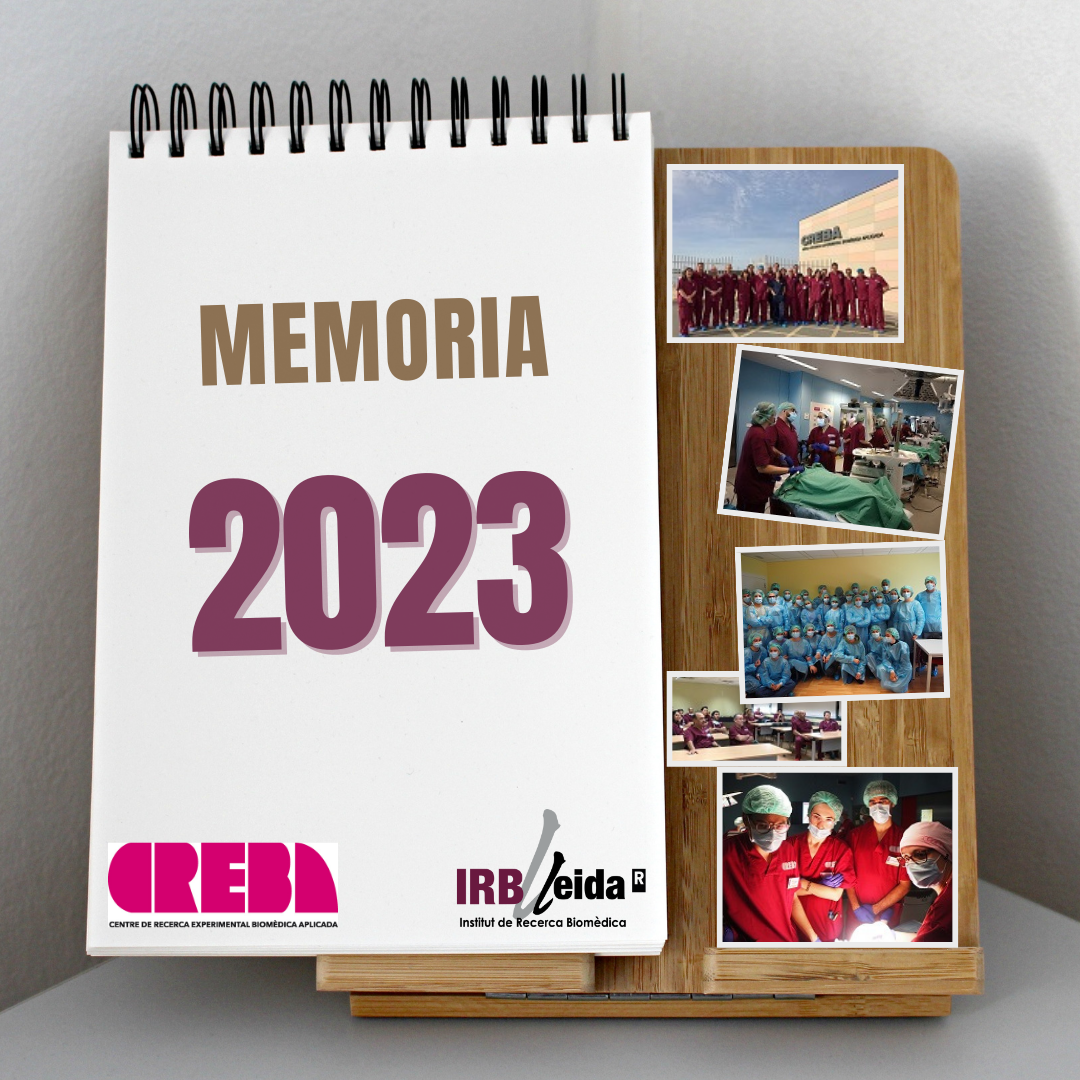
We present the activity carried out at CREBA during the year 2023, which is encompassed in the three main lines of work:– Biomedical research: during this year, CREBA has provided comprehensive support (from design advice to analysis of results) to two research projects.– Continuous training of healthcare personnel: 25 specialised and/or continuous healthcare training activities have been carried out. This has brought together a total of 437 attendees from the fields of traumatology, general surgery, urology, endoscopy, radiology, nephrology, endocrinology, gynaecology, vascular surgery and veterinary medicine.– Scientific dissemination: we have organised workshops......
Continue Reading
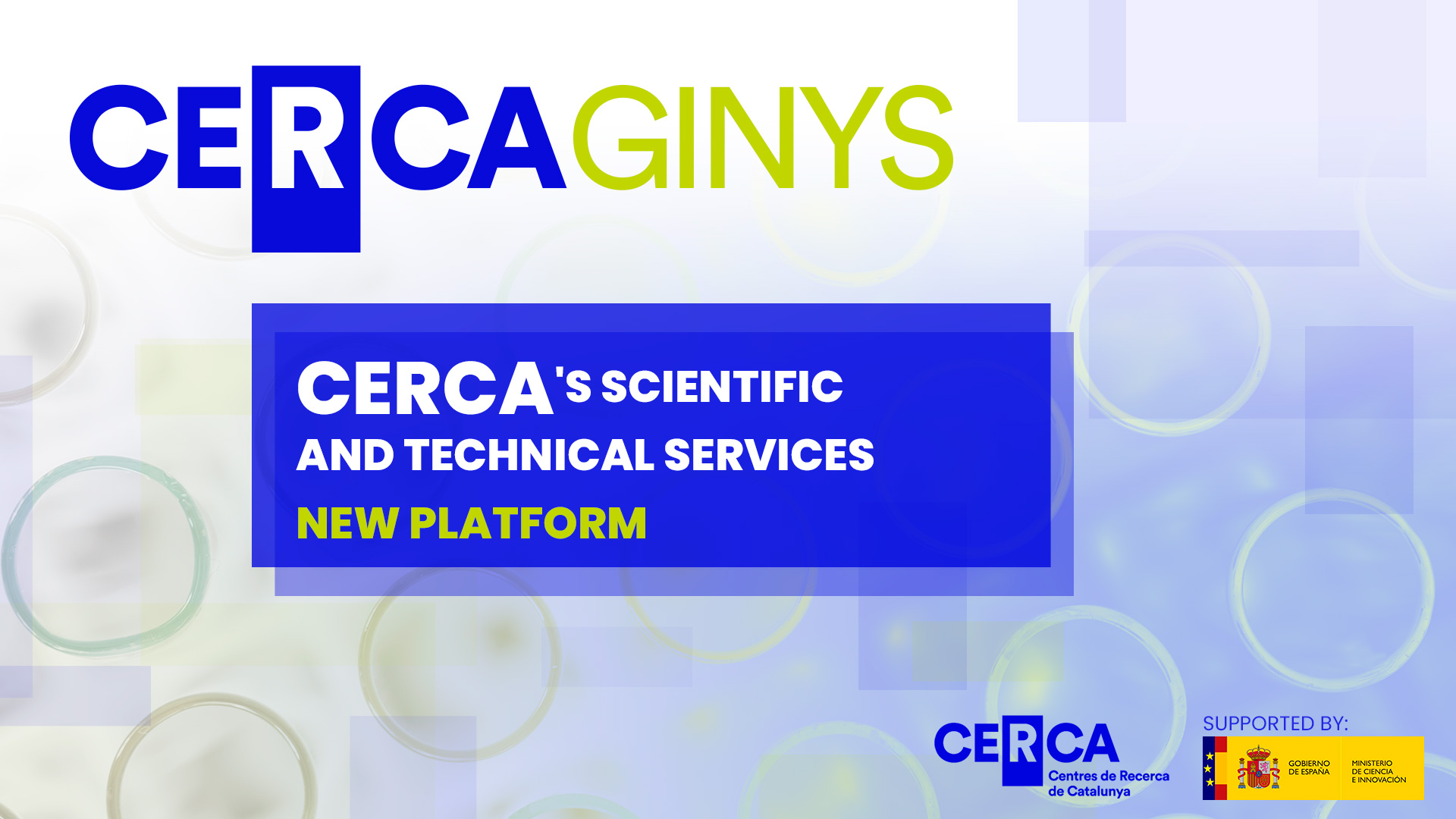
After months of intense work, CERCAGinys has been created!! This is a platform that brings together the scientific and technical services of the research centres of Catalonia (CERCA). In this way, the resources of these centres – including IRBLleida – are made public in a unified way, making them more accessible to research professionals from all over the world....
Continue Reading

The biomedic researchers use the porcine model in the experimentation process, due to its physical, physiological and behavioral similarity with the human. However, this model has some disadvantages, such as the size of the animals and the high costs of housing and care. Conventional pigs reach weights of up to 200 kg in adulthood, which is too different from usual human weight, as well as unmanageable for researchers. For this reason, young pigs are frequently used, due to their weights are manageable and similar to humans. However, in many studies such animals......
Continue Reading

Animal research has been a main tool to achieve great advances in Medicine, unachievable by other ways. Currently, we find a high number of vertebrate animals of different species used for scientific purposes, and among them we find the pig, which is used in the Center for Applied Biomedical Experimental Research (CREBA). The pig has a great physiological and anatomical similarity to the human, and this has many advantages for biomedical research. Rodents are the most used species in this area; However, in some research fields, the information that can be extracted......
Continue Reading
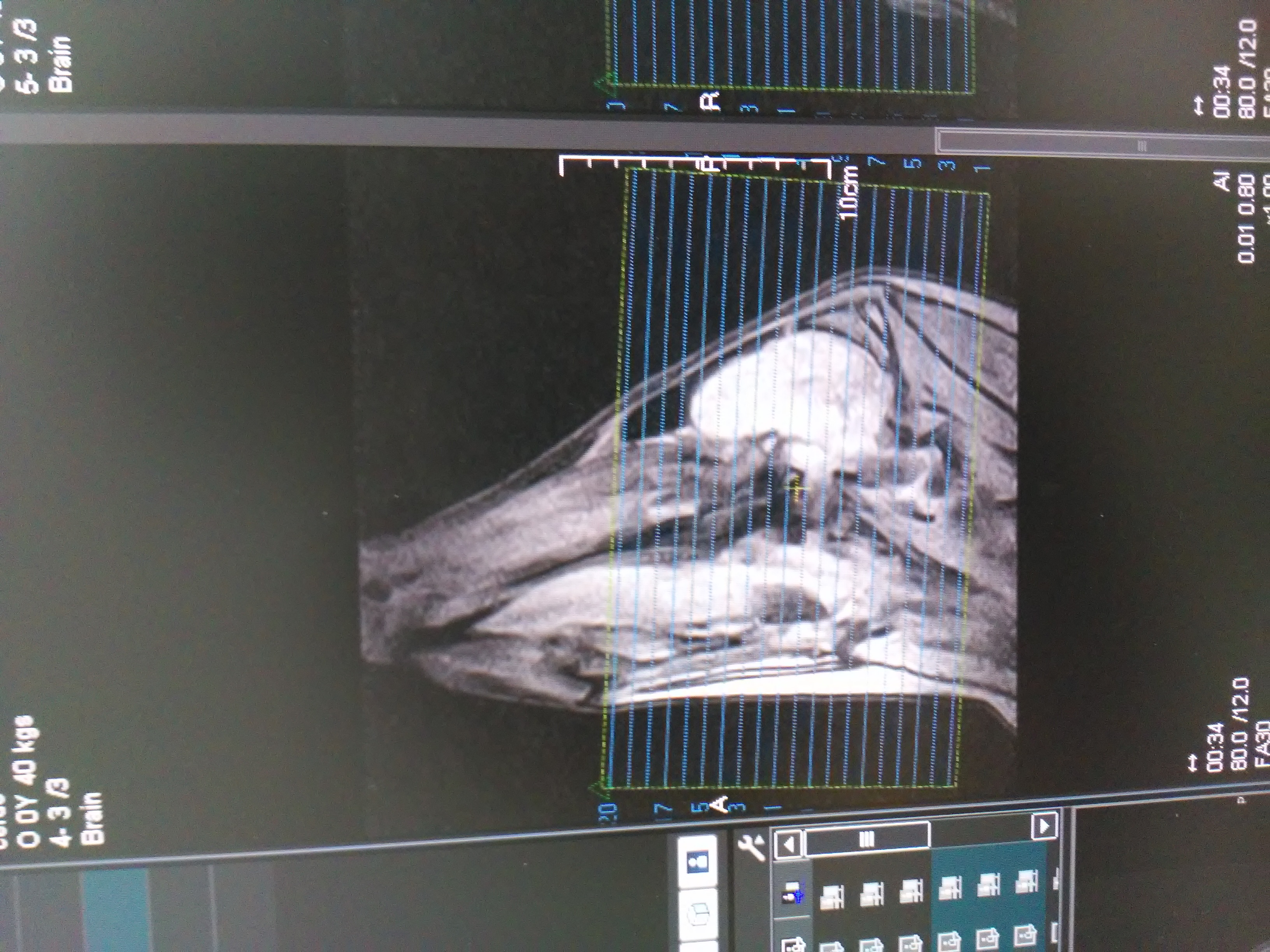
Few days ago, we have performed the first collaborative actions with the Hospital of the Veterinary School of the University of Lleida. The imaging techniques available in that building (especially CT and MRI) are very attractive for researchers who use animal models, and may be complementary to the experimental resources of CREBA for research projects or specialized training activities that require it....
Continue Reading
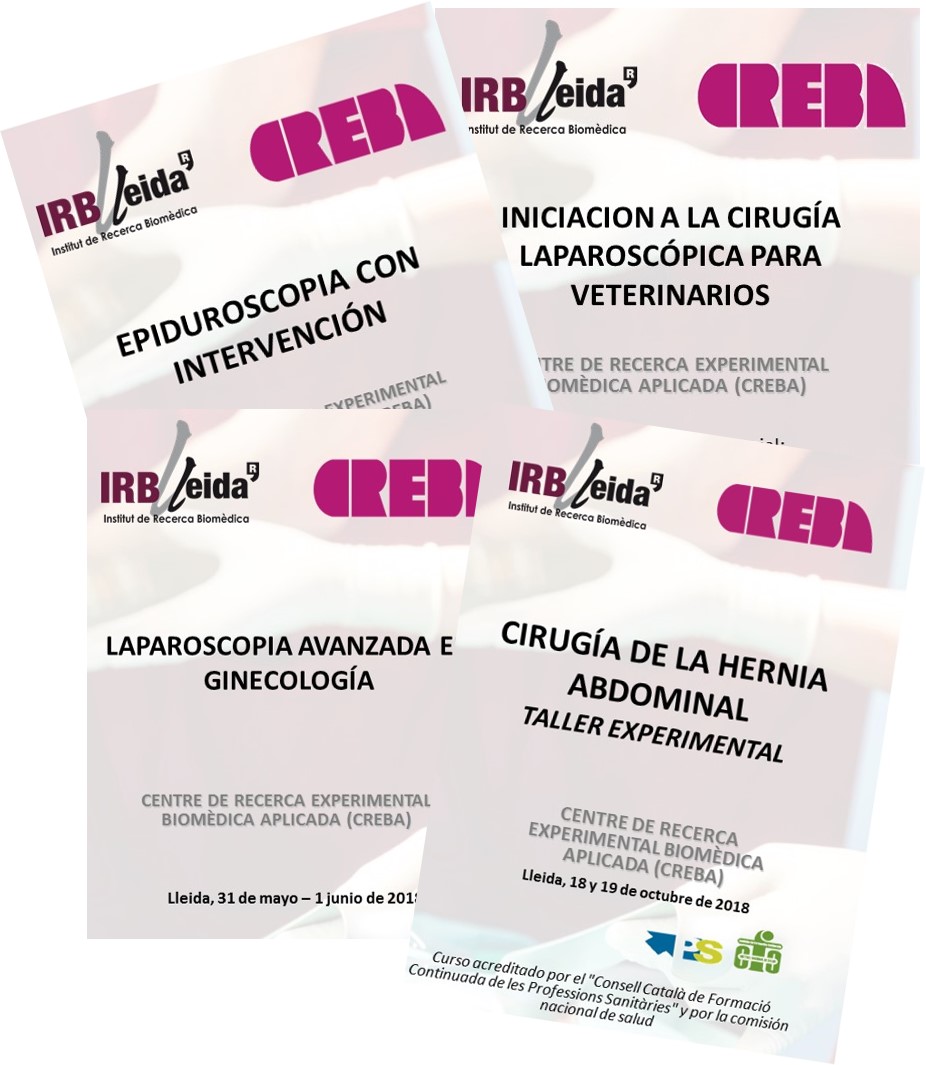
How 2018 was in the CREBA: 33 courses, 355 attendees. Topics: Laparoscopic gastrointestinal surgery: hepato-bilio-pancreatic, esophagogastric, abdominal-wall and bariatric surgery Laparoscopic urological surgery Laparoscopic gynecological surgery Vascular surgery Digestive endoscopy Epiduroscopy with intervention Interventional nephrology Mediastinoscopy Pneumology Laparoscopic veterinary surgery 4 research projects. Topics: Abdominal-wall surgery Chronic renal disease Lung transplantation Peritonitis 4 workshops with students from Lleida schools...
Continue Reading
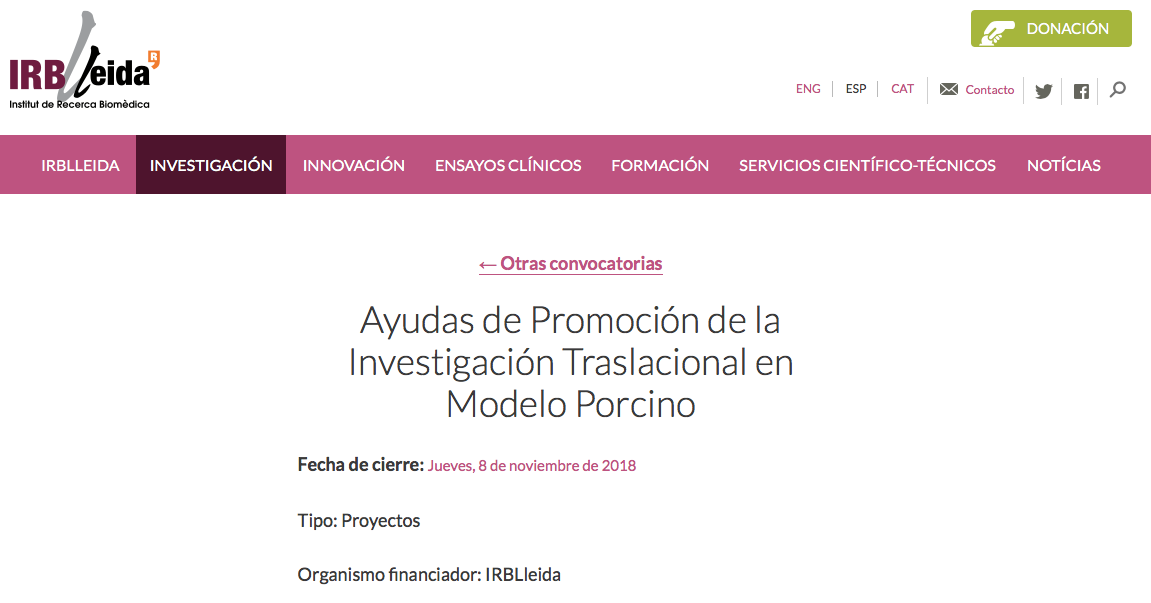
Next Thursday, November 8, at 3:00 pm, is the deadline of the first intramural call of the IRBLleida for biomedical translational research projects in porcine models. The goals of this call is, on the one hand, to develop porcine models of human pathologies that, once proven their viability, can be part of the CREBA services catalog and can be offered to internal and external research groups. On the other hand, these aids intend to make easy the access of the IRBLleida groups to such experimental models, so valuable for the advancement of......
Continue Reading
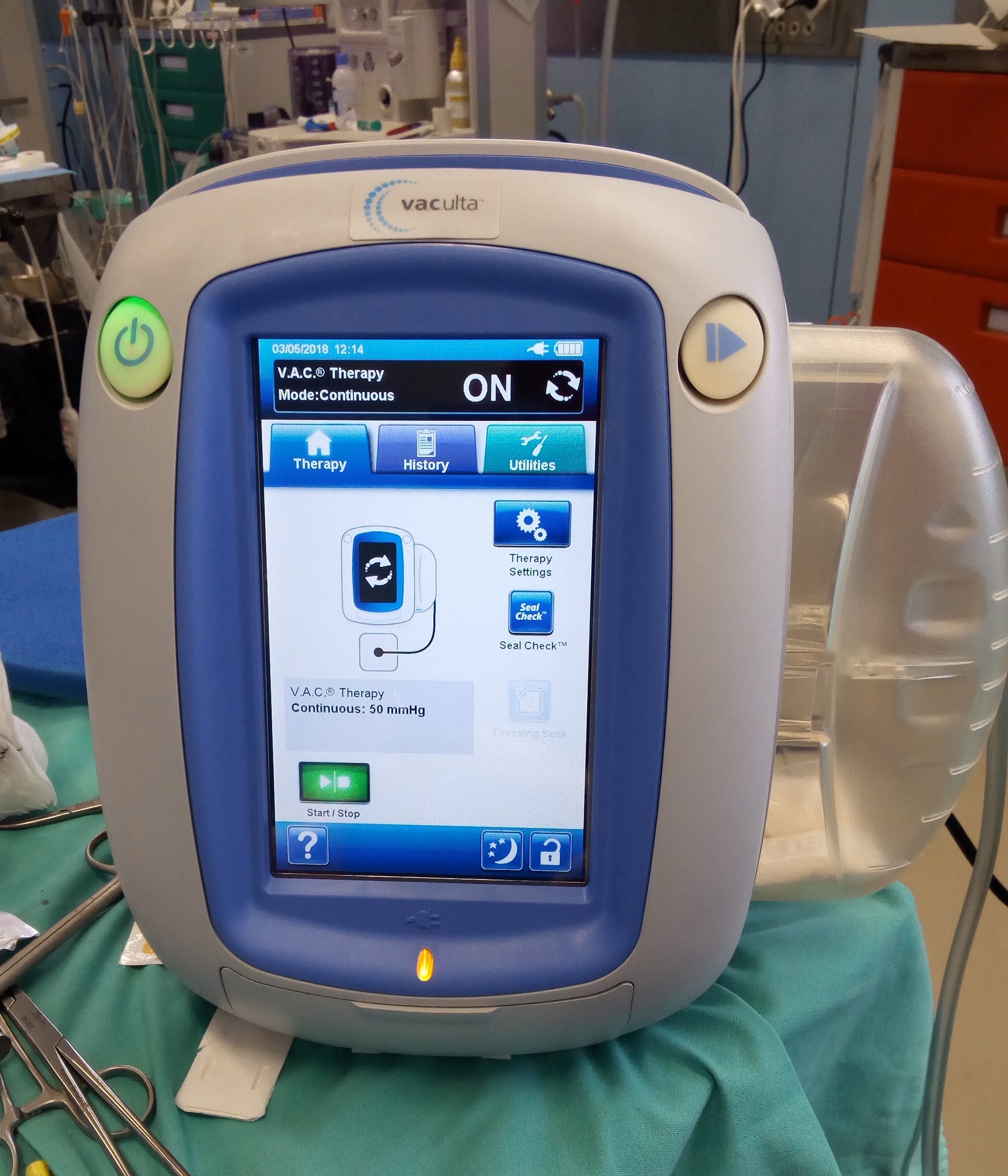
On March 5, it was carried out the first experimental session of a study on a new way for the treatment of the serious consequences generated by severe peritonitis. This new therapeutic approach is based on the use of negative pressure and local anesthetic. Headed by Dr. Montiel Jiménez, general surgeon of the “Rey Juan Carlos” University Hospital in Madrid, and sponsored by the company AcelityTM, this study will be conducted in the CREBA, being the third research project since the beginning of the activity in the Center. ...
Continue Reading
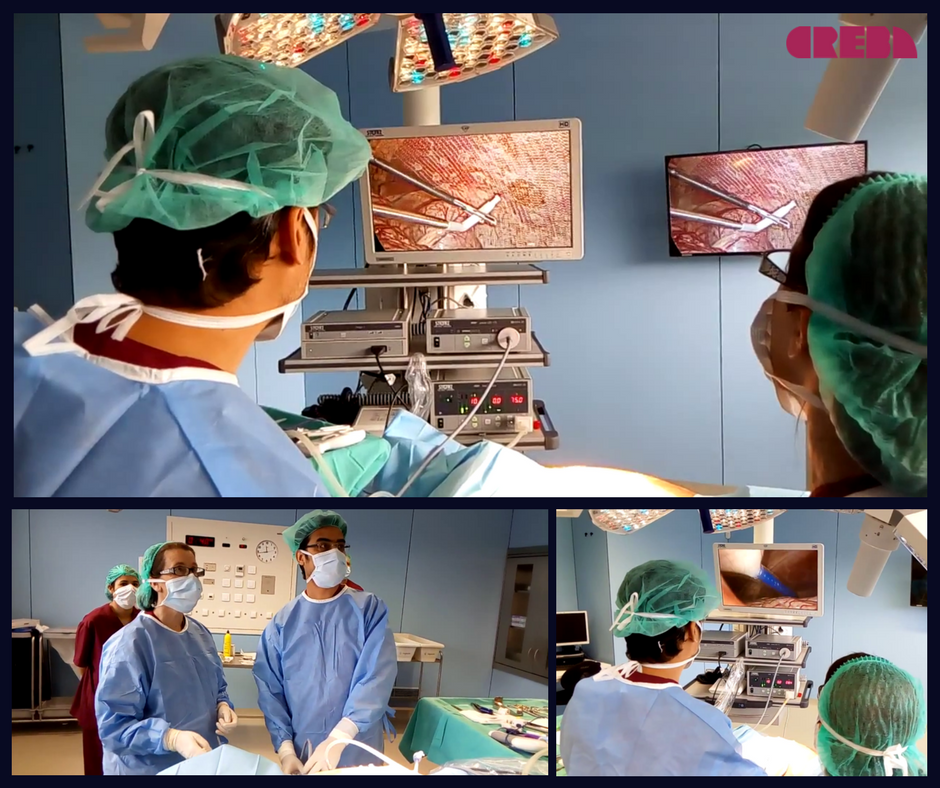
On June 5, it was started the first research project to be developed entirely in this Center, under the direction of Dr. Villalobos Mori – Responsible for the Abdominal Wall Unit and CMA of the University Hospital Arnau de Vilanova- , with the support of Dr. Carme Mias, surgeon at the same hospital. It will be six months of an experimental research project to evaluate a technique of “fixing a mesh with synthetic glue for the repair of incisional hernia by laparoscopic surgery”. ...
Continue Reading
